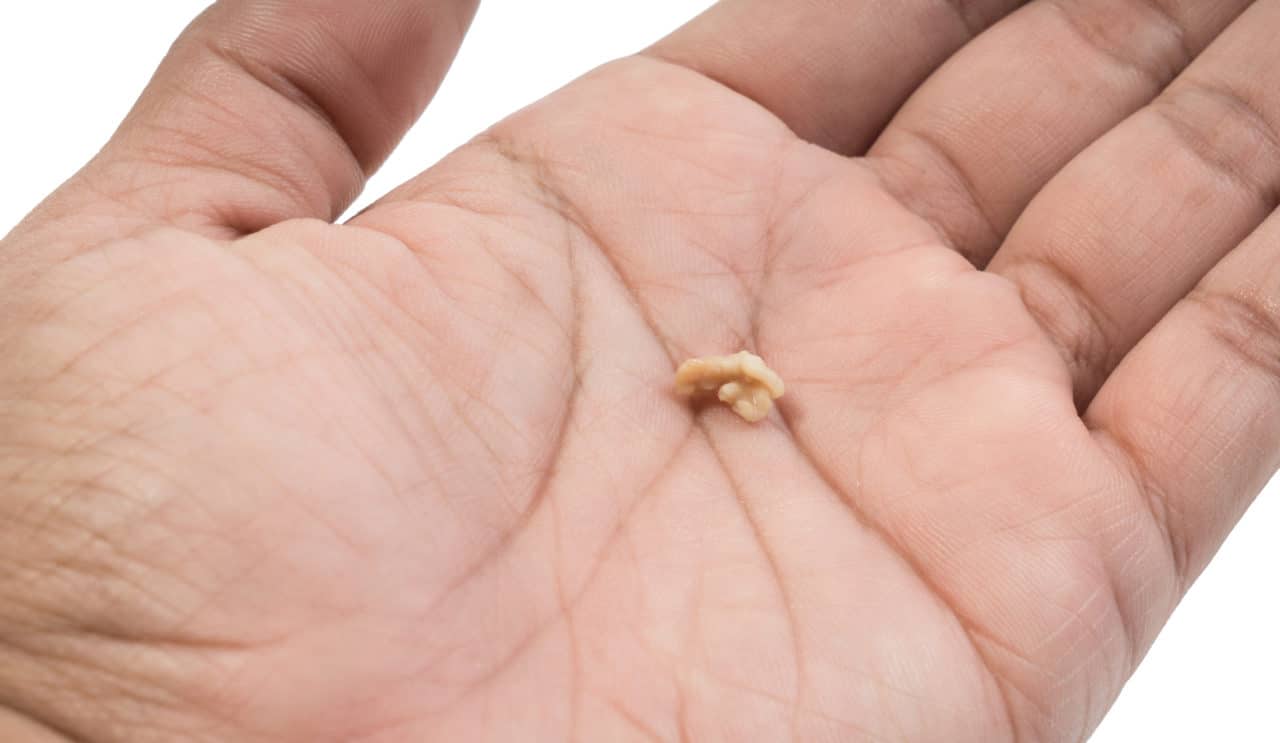I Remove Tonsil Stone but It Come Back
Tonsil stones (or tonsilloliths) are lumps of hard material made up of mucus and bacteria that build up in the tonsils.
They're normally harmless, but they can be irritating and painful.
Some tonsil stones make it hard to swallow, or give you a sore throat. They can also cause bad breath (halitosis) as they provide a home for bacteria to grow that can make your breath smell.
It's normally safe to remove tonsil stones yourself, by dislodging them.
But what if they keep coming back?
There's no way to prevent tonsil stones from reoccurring without surgery, but there may be some things you can do to reduce the chances of a new stone forming.

Maintain good oral hygiene
Tonsil stones form when bacteria and other debris gather in tiny folds on the surface of your tonsils. Taking the time to brush your teeth thoroughly can stop any bacteria and debris from building up in your mouth — helping to prevent new tonsil stones from forming.
Rinsing your mouth with an antibacterial mouthwash or a saltwater solution can also help to kill any bacteria found here.
Some experts recommend using a tongue scraper to remove bacteria that might be living on your tongue.

How to practice good oral hygiene
If you're worried that your oral hygiene isn't good enough, it might be worth examining your daily routine.
According to the American Dental Association (ADA), you should try to:
- brush your teeth twice a day — using fluoride toothpaste to kill bacteria and protect your teeth
- clean between your teeth at least once a day with floss or a dental pick to remove any debris
A healthy diet is important too, because drinking soft drinks and eating lots of sugary foods can encourage bacteria to build up in your mouth.
Quit smoking or reduce how much you drink
There's some evidence to suggest that smoking cigarettes and drinking alcohol can increase your risk of developing a tonsil stone.
If you smoke or drink and you have a lot of tonsil stones, it may be worth thinking about cutting down.

Speak to a doctor
If you've tried these changes and you're still getting lots of tonsil stones, it may be worth speaking to a doctor to find out what could be causing them to keep forming.
Studies show that people who get recurrent (or repeat) episodes of tonsillitis are also more likely to develop tonsil stones. This is because tonsillitis can scar the surface of your tonsils — creating more folds and cavities to trap bacteria and other debris.
Some people also have naturally wrinkly tonsils that contain a lot of folds.
A doctor will probably refer you to a specialist ear nose and throat (ENT) doctor who can examine your tonsil stones and talk to you about your options.
The treatments you can access may vary depending on where you live, but these are some of the common surgical procedures used to remove tonsil stones.
Tonsillotomy
A tonsillotomy (sometimes called a partial tonsillectomy) is where a surgeon flattens the surface of your tonsils. This removes the pits and crevices that trap debris and allow tonsil stones to form.
Some tonsillotomies can be done under local anaesthetic, using a laser, surgical tools or high-frequency radio waves to flatten your tonsils.
Some experts think that these procedures are safer than a full tonsillectomy - where the whole tonsil is removed - because they don't need to be performed under general anaesthetic. There's some evidence to suggest that tonsillotomies have shorter recovery times too.
But tonsillotomies are not available everywhere, and some doctors may recommend a tonsillectomy instead.
Tonsillectomy
A tonsillectomy is where a surgeon removes both your tonsils. This will stop tonsil stones from coming back, but it's rare for a doctor to recommend this to prevent tonsil stones.
This is because the procedure has to be done under general anaesthetic, which can cause side effects. These can include dizziness, confusion and memory loss, temporary bladder problems, vomiting and feelings of nausea, which can last up to a day.
Tonsillectomies can also cause side effects like infection and bleeding, and it can take up to 12 days to fully recover.
Key points
- brushing your teeth twice a day can help stop bacteria from building up in your mouth, and prevent tonsil stones from forming
- rinsing your mouth with a saltwater solution can also help
- eating a healthy diet that's low in sugary foods can help prevent build up of bacteria
- cut down on cigarettes and alcohol
- There's some evidence to suggest that smoking cigarettes and drinking alcohol can increase your risk of developing a tonsil stone
I Remove Tonsil Stone but It Come Back
Source: https://www.livehealthily.com/nose-sinus-problems/how-to-stop-tonsil-stones-from-coming-back
إرسال تعليق for "I Remove Tonsil Stone but It Come Back"